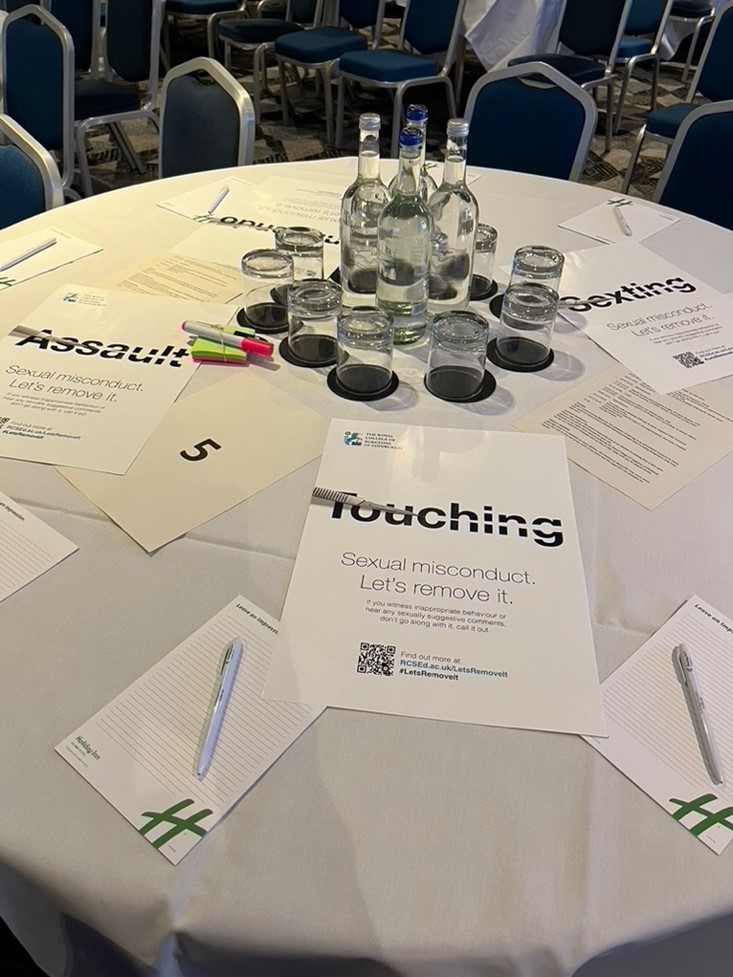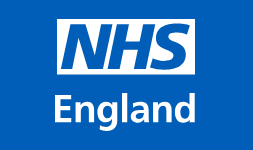
By Prof Helen Steed and Dr Ellen Knox
The West Midlands Dean’s office hosted over 100 local multi-professional senior leaders, including Chief Medical Officers, DMEs, HR teams, Sexual Safety officers, Training Programme directors and many others. The event was supported by the Royal College of Surgeons, the Royal College of Surgeons of Edinburgh and the GMC.
The aim was to raise awareness of the issue in the workplace during national sexual abuse and sexual violence awareness week, to provoke discussion about why this is such a difficult cultural issue to tackle and to challenge the audience on how we can, and must, do better.
Ms Anna Chapman representative of the School of Surgery and the West Midlands School of Surgery spoke to the WMPS report and the scale of the problem, setting the scene nationally and addressing specific concerns organisationally and for individuals.
Ms Tista Chakraverty- Gannon, principal regional liaison advisor for the GMC presented on the need to create a paradigm shift to anti-misogyny and the importance of organisational and placement culture.
Dr Sarah Bowater a consultant cardiologist at UHB, TPD for cardiology in the West Midlands talked about safe spaces and brave spaces and where these have been used successfully elsewhere. This included NHS experiences with wobble rooms during covid, Leap without Limits programme by UK Sport and Sport England in 2020 in response to the abuse of gymnasts, the joint initiative between Strawberries and Creem and UN Women UK to deliver the first Safe Space Now festival and the UNICEF Laaha initiative to create a digital safe space.
Dr Darya Ibrahim, foundation year 1 from Manchester spoke about her work on this topic in the undergraduate sphere and on the best practice toolkit for healthcare education providers on sexism and sexual safety for learners that is nearing completion.
Dr Gillian Harrop from the University of Worcester formerly an intelligence analyst in the Force Intelligence Bureau and Major Crime Unit spoke about the psychology behind the bystander response and the barriers that prevent people from being upstanders. Illustrating her talk with experiences from her work in the police force and with the university undergraduates.
There were also presentations by the local Professional Support and Wellbeing lead Ms Doreen Davis and Associate PG Dean Dr Manjit Obhrai on the do’s and don’ts of receiving first disclosures. They described the importance of getting this right and how easy it is when shocked or surprised by something serious and criminal to react in an uncontrolled and unwittingly negatively impactful manner. These are based on the NHSE sexual safety toolkit.
What to do:
- Listen
- Believe and take appropriate action
- Remember they are not at fault
- Recognise how difficult it may have been for them to disclose
- Let them control the situation and pace of disclosure
- Respect their decisions and boundaries
- Remember your role is to provide support
What not to do:
- Ask them why they have not said anything sooner
- Be judgemental
- Ask why they allowed this to happen and why they didn’t run
- Tell others without their permission
- Defend the offender
- Investigate what has been disclosed to you
- Make assumptions
The West Midlands police attended to describe their approach to the crime of sexual harassment what should be reported to them, it felt clear that the threshold is low to record an incident as a crime with a formal crime number, even if the eventual decision by the individual is not to pursue things further. Sergeant Harwood detailed the Protection from harassment act 1997, highlighting that it is the effect of the conduct not the intent and you do not need to have previously objected to someone’s behaviour for it to be considered sexual harassment and the fact the act allows that you can be affected by it and report it even if you are not the direct target of the behaviour.
We ended lead by Interim Postgraduate Dean Prof Andy Whallet, with broad examples and discussed different approaches which illustrated the potential for organisational variance, allowing organisational leaders to reflect on their own organisational practices.
On the whole, this was a good first event to bring regional leaders together on this topic, many organisations brought a team of people and there was much discussion during the event, the breaks and some teams staying behind afterwards to talk about next steps. The event was captured on film and will be available to watch in the near future on the West Midlands postgraduate virtual learning environment. We have set up a working group and are working towards a regional escalation policy that links NHSE WT&E and trusts directly and are also exploring how we can all work together to address the underlying behavioural and cultural issues.
We need to continue the conversation about sexual safety and make the conversation LOUDER.
Resources or related articles:
https://www.england.nhs.uk/long-read/sexual-safety-in-healthcare-organisational-charter/
https://healthandcare.scot/stories/3713/surgeons-campaign-tackle-sexual-misconduct-harrassment
https://www.bmj.com/content/384/bmj.q276


